Nature Communications
-

New research points to cell subtypes that increase risk of diabetes
Three Vanderbilt faculty members are diving into a "chicken-and-egg" problem of type 2 diabetes: Does the disease change beta-cell subtypes? Or do changes in the cells cause diabetes? Guoqiang Gu, Emily Hodges and Ken Lau have come up with a new method of studying the subtypes that can track them through different stages instead of just once when they're fully developed. "Thanks to this and other research, it may be possible to one day create a diet supplement for pregnancy that could reduce the risk of diabetes for babies," Gu said. Read MoreAug 7, 2025
-
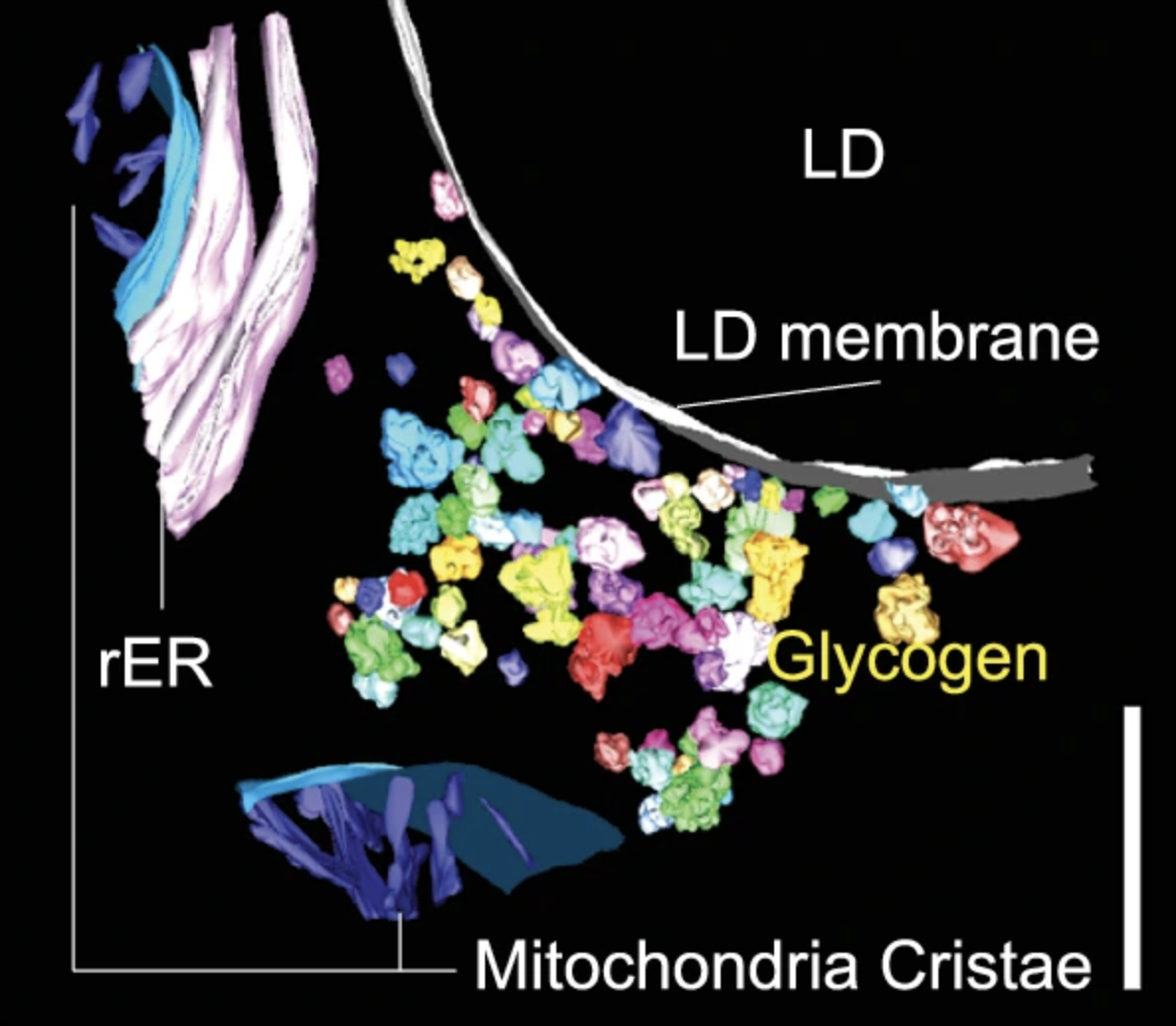
Pioneering new method reveals glucose channeling, charting the fine structure of energy metabolism inside active cells
In a scientific first, researchers from Vanderbilt University and the University of California, San Diego, have generated a high-resolution metabolic “map” of how cells orchestrate glucose processing, revealing a hidden world where organelles and molecular complexes collaborate when responding to a rush of nutrients. This new study, published in Nature Communications, has redefined how glucose metabolism is visualized at the single-cell level. Read MoreJul 21, 2025
-
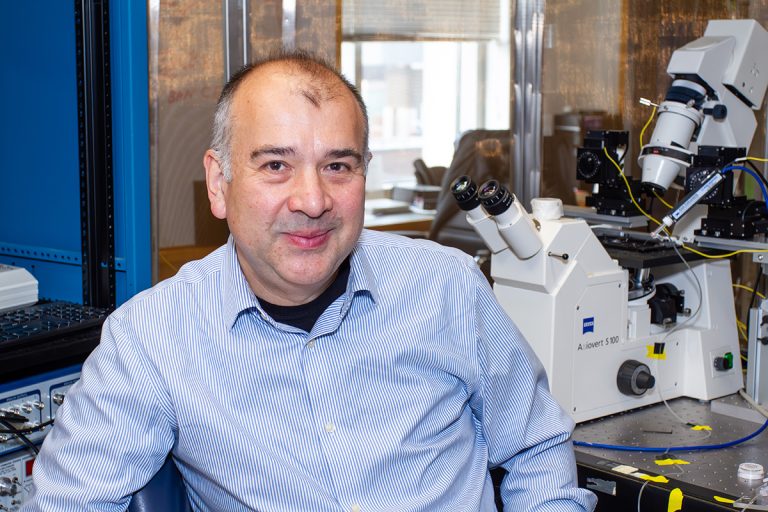
How do you maintain a cellular structure without a membrane? Researchers find that synapses can use liquids to create functional separations
The laboratory of Ege Kavalali, professor and chair of the Department of Pharmacology, published a new paper in Nature Communications that determined that liquid-liquid phase separation plays a key role within the nanostructure of synapses, and that its disruption affects evoked but not spontaneous neurotransmission. Read MoreMar 6, 2025
-
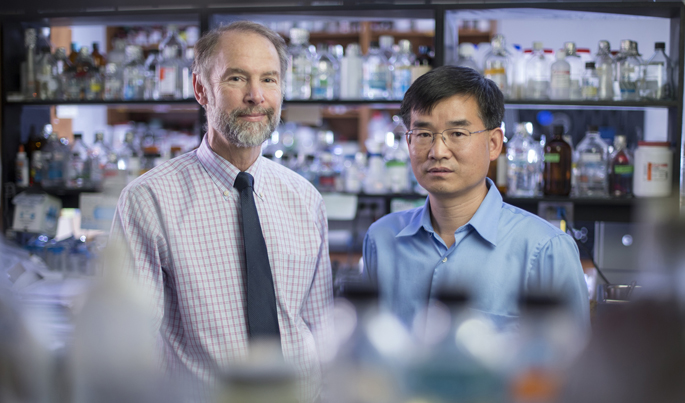
VUMC scientists discover key step to kidney fibrosis
Researchers at Vanderbilt University Medical Center for the first time have shown that activation of the epidermal growth factor receptor (EGFR) is essential for the development of kidney fibrosis, tissue scarring following injury that can lead to kidney failure. Read MoreNov 21, 2023
-

‘Nature’ conference on Bioengineering for Global Health seeks to foster “radical collaboration” that will make an impact on health disparities
Researchers from around the globe gathered for the inaugural Nature conference “Bioengineering for Global Health” at Vanderbilt University Nov. 13–15. Faculty members from the Department of Biomedical Engineering and editors from Nature Communications, Nature Biomedical Engineering and Nature Reviews Bioengineering led the organization of the conference. Read MoreNov 20, 2023
-

Researchers’ breakthrough in thermal transport could enable novel cooling strategies
Vanderbilt mechanical engineering professors Deyu Li and Josh Caldwell are part of a team of researchers who have discovered a new heat dissipation channel using phonon polaritons that could have extensive implications for novel cooling technologies in devices like smart phones and other modern electronics. The research was recently published in Nature Communications under the... Read MoreNov 10, 2023
-
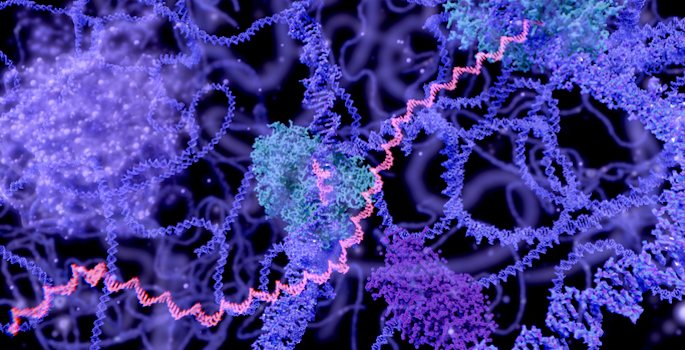
Study details RNA editing in virus-infected cancer cells
Vanderbilt researchers detail the landscape of RNA editing — a form of RNA modification — in primary effusion lymphoma cells during Kaposi’s sarcoma-associated herpesvirus infection and identify an edited viral microRNA that is critical for infection. Read MoreApr 20, 2023
-

Vanderbilt engineers’ paper on differences in water and water vapor transport selected as ‘Editors’ Highlight’ in Nature Communications
The transport of water molecules through nanoscale pores is central to a number of processes like water treatment, biological membranes, ionic/molecular separations, water treatment and protective applications, but the mechanisms of transport are not fully understood. Piran Kidambi, assistant professor of chemical and biomolecular engineering at Vanderbilt, and a team of researchers recently had a... Read MoreDec 1, 2022
-

Next-generation nanomaterials could protect against biological and chemical threats
Vanderbilt researchers have created single-atom thick membranes with pores that allow for transport of water molecules but block even the smallest of salt ions and small molecules. The findings were published in Nature Communications on November 7, 2022, and could hold implications for developing advanced materials that protect against threats such as biological and chemical... Read MoreDec 1, 2022
-
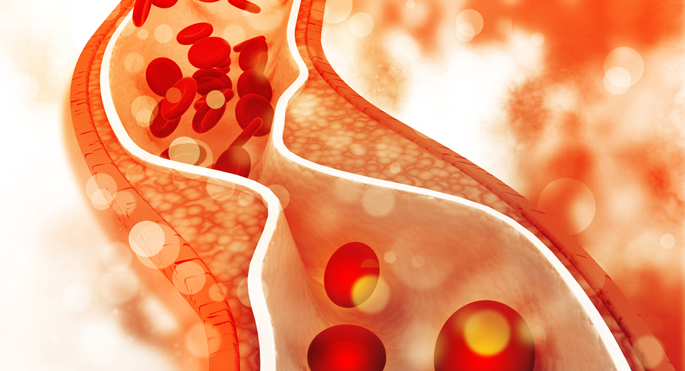
Study suggests new mechanism for lipid transporter
A new model suggests that a protein involved in the generation of high-density lipoprotein (HDL) works differently than previously thought. Read MoreSep 15, 2022
-
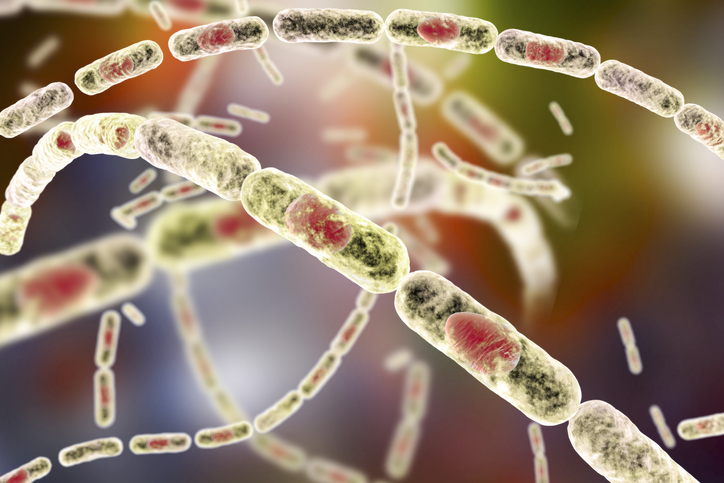
Study advances understanding of bacterial bioterrorism agent
Vanderbilt researchers have identified a critical regulatory factor in the bacterium that causes the disease anthrax and has been used as a biological weapon. Read MoreApr 7, 2022
-

New method enhances efforts to identify drug repurposing targets
Researchers at Vanderbilt University Medical Center have developed a new method for identifying drugs for the repurposing trials that can lead to new indications for drugs already in use. Read MoreJan 20, 2022
-
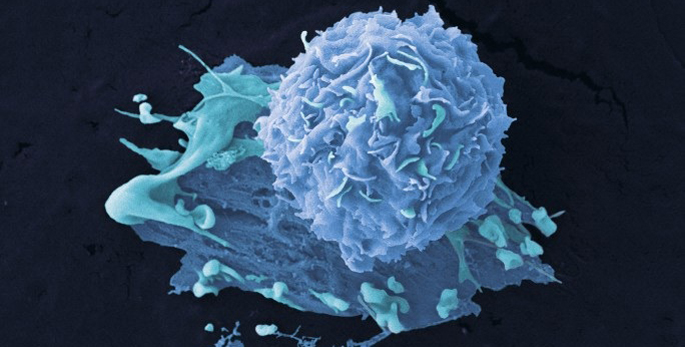
‘Multi-omics’ reveals treatment option for breast cancer subtype
by Bill Snyder In a multidisciplinary collaboration, researchers at Vanderbilt University Medical Center and the University of Miami Miller School of Medicine have identified a subtype of triple-negative breast cancer (TNBC) that appears to be able to escape detection by the immune system and evade immunotherapy. Their report, published Nov. 1 in the journal... Read MoreNov 18, 2021
-
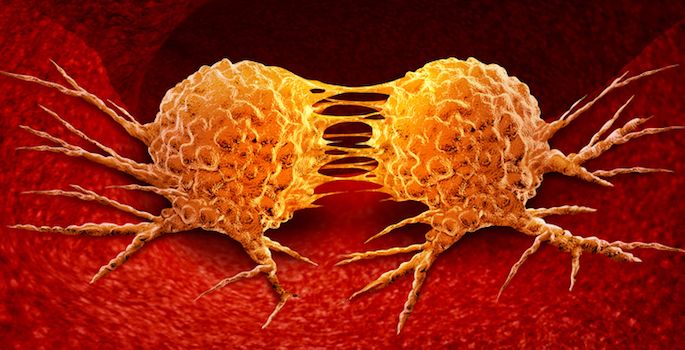
Personalized Structural Biology aids cancer treatment decisions
Cancer specialists at Vanderbilt University Medical Center, in partnership with biochemists and structural biologists across the Vanderbilt University campus, are taking “personalized” cancer therapy to a new level. Read MoreApr 8, 2021
-
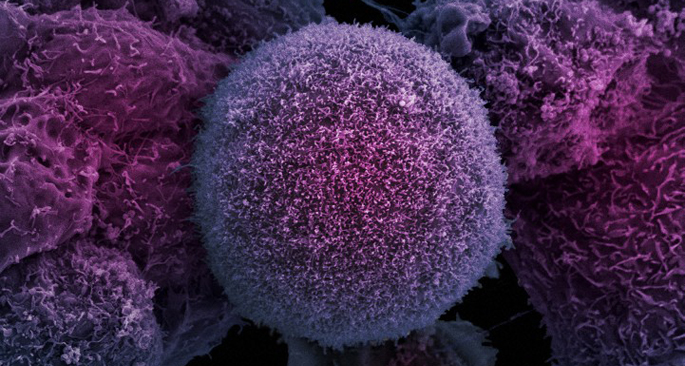
New predictors of prostate cancer risk
An international group of researchers including Vanderbilt epidemiologists has identified new DNA methylation biomarkers associated with prostate cancer risk. Read MoreSep 17, 2020
-
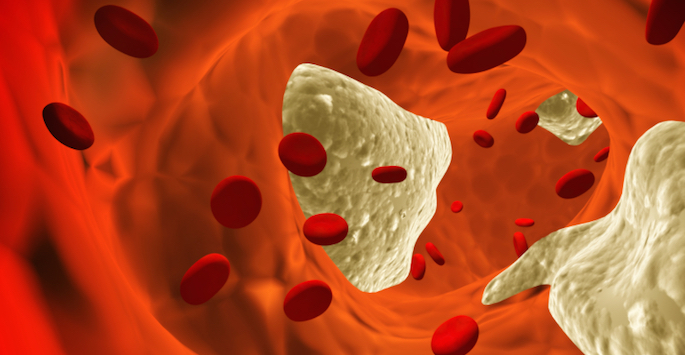
‘Scavenger’ molecule may point to new atherosclerosis treatment
A small-molecule “scavenger” that reduces inflammation and formation of atherosclerotic plaque in blood vessels in mice potentially could lead to a new approach for treating atherosclerosis in humans, according to researchers at Vanderbilt University Medical Center. Read MoreAug 20, 2020
-
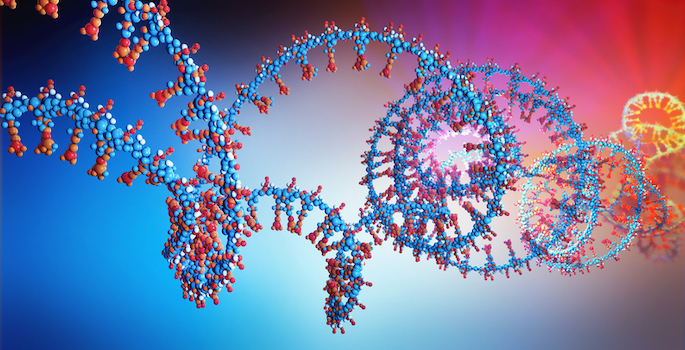
Cellular antiviral defenses
A cellular RNA quality control mechanism was known to restrict replication of RNA viruses. Vanderbilt researchers have discovered it is also antiviral against DNA viruses. Read MoreJul 23, 2020
-

Recurrent UTIs linked to hidden reservoir
Bacterial invasion of vaginal cells sets up a protective niche and a reservoir for recurrent urinary tract infections, Vanderbilt researchers demonstrated. Read MoreJul 9, 2020
-

Study reveals an inherited origin of prostate cancer in families
Vanderbilt researchers have identified haplotypes, ancestral fragments of DNA, that are associated with hereditary prostate cancer in a first-of-its-kind genomic study made possible by the study of prostate cancer patients with family histories of the disease. Read MoreApr 8, 2020
-

Study shines light on architecture of kidney disease
A study of 280,000 U.S. veterans, including 56,000 African Americans, has identified in greater detail than ever before the genetic architecture of kidney function and chronic kidney disease (CKD), according to researchers at Vanderbilt University Medical Center and their colleagues. Read MoreSep 25, 2019